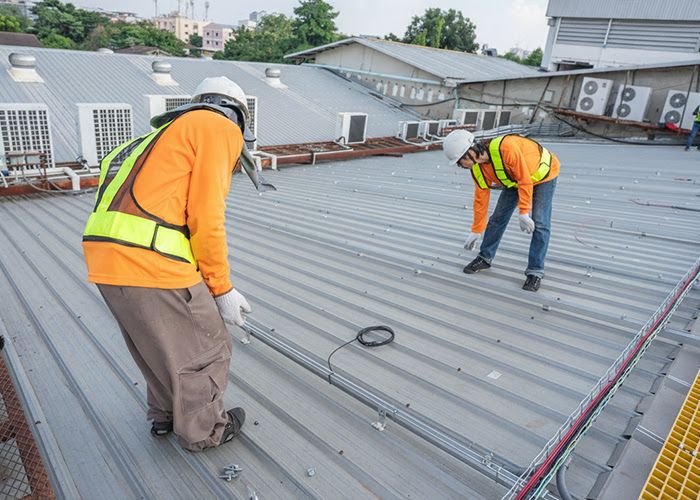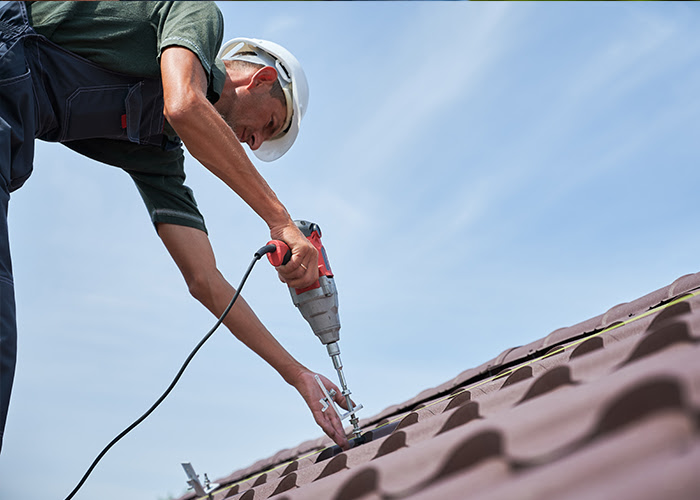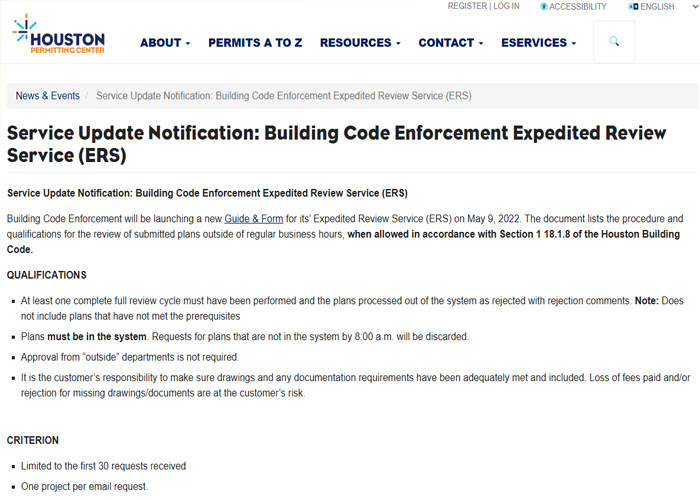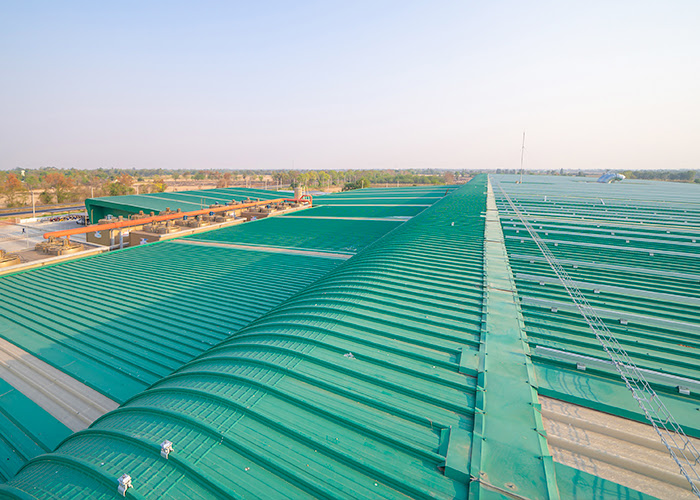Do Houston Commercial Roofs Need a Building Permit?
By Shantell Moya · 3 days ago · 13 min read

You’re staring at a damaged commercial roof in Houston and need to work out the permit requirements before the work starts. The city’s permit requirements are going to affect your timeline and budget in many ways.
Houston needs permits for most commercial roofing work. The city wants to verify that the repairs meet hurricane standards and protect everyone inside. Property owners get stuck between the urgent repair needs and the paperwork that comes with the process. Your contractor might promise that they’ll take care of everything or tell you about skipping the permits altogether.
The permit process asks for certain documentation and multiple inspections along the way. Missing one requirement means that you’ll start over from scratch. Unpermitted work can lead to stop-work orders and fines of $500 for each day. Insurance companies might also deny claims for unpermitted repairs.
Here’s when your Houston commercial roof project needs a permit!
What Roof Work Needs Houston Permits
Most commercial roof projects in Houston are going to need a permit when the work is big enough. The city actually has pretty simple requirements for what qualifies as substantial work. Replacing your entire roof or just a large section requires getting a permit before any work starts. Any repairs that affect the structural parts of your building will fall under the same requirements.
Houston’s threshold sits at 25% of your total roof area. This applies to situations where you might want to add a new layer of roofing material right over what’s already up there. Even when you’re not planning to tear anything off, that extra layer is going to change how much weight your building needs to support, and the city wants to review that.
The permit requirements make plenty of sense in Houston’s climate. Buildings here need to handle heavy rain, strong winds and hurricanes (because yes, they do happen). The city wants to make sure that any roof work meets building codes and that it will actually protect your building when bad weather rolls in. When they review your plans, one of the main aspects that they check is how well the roof connects to the rest of the structure. Structural repairs will always need permits from your local building department, regardless of what percentage of the roof is affected. Damaged decking, broken trusses or compromised support beams – these kinds of structural problems mean that you’ll need to file the right documentation with the city and schedule inspections before starting and after the work is finished.
The permit process also makes sure that contractors are following the right installation methods for your commercial roofing system. Different roofing materials have different requirements for how they attach and how they drain water. What works just fine for a flat TPO roof just won’t cut it for a metal roof system. The city relies on the permit review to make sure that whatever system you’ve chosen actually matches your building type and meets the local requirements.
Small Repairs That Need No Permits
Nobody wants to wait three weeks for a permit when water is actively dripping into their office. Houston gets this, and the city has actually carved out some solid exceptions that let you take care of some small repairs without having to jump through the permit hoops first. For business owners who need to fix something fast, these exemptions can be a lifesaver.
The city has set up a simple guideline – if a repair covers less than 25% of your roof, it’s usually going to fall into the “minor” category. We’re talking about repairs like swapping out a few shingles after a windstorm has come through or sealing up a leak that’s formed around one of your AC units. You can go ahead and take care of these kinds of repairs quickly without having to call the permit office first.
Here’s a way to tell where the line is. If you’re up on the roof with a bucket of tar and some patches to stop a leak near a vent pipe, you’re almost certainly fine. But having a whole crew up there tearing off big sections of the membrane or swapping out entire drainage systems means that it’s time to pump the brakes and get permits first. Houston wants to make sure that the buildings in the city are safe, but they also know that property owners need to be able to fix urgent problems without unnecessary delays.
Just be careful with that word “minor” – it carries some legal weight in Houston’s building code. A small-looking repair might not technically qualify for the exemption. A repair could affect the structural elements or change the way that water drains off your building, and at that point, you’re in different territory.
Emergency situations do get handled a bit differently. Houston recognizes that storm damage and sudden leaks aren’t always going to wait around for the paperwork to go through. The city usually lets you do temporary repairs to stop further damage to your property. You might still need to file for permits later once those temporary fixes turn into permanent ones, but at least you can stop the immediate problem without worrying about racking up violations.
Required Documents for Your Roof Permit
As you prepare to head down to the permit office, you’ll need to bring a few documents with you. The city will want to see drawings that show what you have planned for your roof. Structural calculations are another big part of what you’ll need to submit. Your engineer has to prove that your new roof can hold up against Houston’s weather conditions – and I mean every one of them. Hurricane-force winds are a real concern down here, after all.
Your contractor’s license information also has to be on the list of documents that you submit. Houston wants to make sure that the person you hire for your roof actually has the right license for the job. This protects you and the city alike. Nobody wants to get halfway through a roofing project and find out that the contractor never had the correct license in the first place.
The project specs document pulls everything together into one full picture. Here you’ll write down the specifics about what your roofing project will actually include. List out the materials you’ll use and explain how you’ll manage water drainage on the roof. The drainage plan matters quite a bit here because when you don’t get it right, you can get stuck with water that pools on your roof, and that eventually causes damage down the line.
Showing up without one of these documents means you’ll have to start the whole process over from the beginning. The permit office won’t process anything when any needed documents are missing from your file. They’ll send you home and tell you to come back when you have everything together. That one mistake can add a few weeks to your timeline when you don’t come prepared on your first visit.
Take a few extra minutes to double-check all your paperwork and make sure that everything is filled out when you’re ready to hand it in. Every one of these documents helps the city to get a full picture of what you want to accomplish with your project. After you’ve submitted everything, the ball is in their court, and all you can do is wait as they go through everything and review your plans.
Three Main Inspection Stages for Your Project
After you get your permit and the paperwork is squared away, the construction itself comes along and brings its own series of checkpoints that you’ll need to pass. Houston inspectors are going to visit your commercial roof project at three main stages as the work is underway. Each one zeroes in on a different part of the job to verify that everything is meeting the city code.
The first inspection takes place during the tear-off stage when your crew removes the old roofing materials. The inspector will also verify that your contractor is following the right safety protocols during what tends to be a pretty messy part of the project. The structural phase inspection comes next, and it matters quite a bit. Inspectors will check out how your contractor installs the support structures and reinforcements. They’re going to look to see if the decking is in decent shape and if any repairs to the underlying structure were done correctly. If something doesn’t look right at this stage, the inspector can stop the work then and there.
Your final inspection covers the completed waterproofing and the quality of the installation. The inspector is going to check that the layers are sealed properly and that your drainage systems will work the way they should. This last inspection is what determines if you can call the project done and move forward.
Something to remember about these inspections is that the city won’t show up on its own to check your roof. Either you or your contractor is going to need to call and schedule each inspection as the work moves along. Most contractors already know this process inside and out and will take care of the scheduling for you as part of what they do.
The weather will throw off your inspection timeline, too. A full week of rain can push back your tear-off and delay your structural inspection right along with it. Try to build some buffer time into your schedule from the beginning.
Houston’s weather has a reputation for ignoring construction plans!
What Happens When You Skip the Permits
It doesn’t always feel like a big deal to skip the permit process if you have a roof project to finish and a budget to stick to. Houston inspectors usually find unpermitted roof work on commercial buildings, and the property owners face some large consequences when it happens. The city can enforce these violations in a few ways – any one of them can turn a minor shortcut into a massive problem.
Stop-work orders are usually the first response from the city. Receiving one of these legal notices brings your entire roofing project to a halt. Contractors have to pack up and leave the job site right away, and no work can resume until the permit issue is resolved. This leaves your building exposed with an incomplete roof as you scramble to take care of the documentation requirements.
The financial penalties can become expensive very quickly. Houston has the ability to fine property owners $500 per day for unpermitted commercial roofing work. Those fines continue to accumulate every day until you either get the right permits or remove the unauthorized work completely. Property owners have ended up owing thousands and thousands of dollars in fines before they knew that they had a permit violation on their hands.
Even after you finish the roof, these problems don’t go away. Unpermitted roofing work will cause problems when you try to sell your commercial property. Title companies will discover the problem during the inspections, and buyers will find out about it, too. You’ll need to get the permitting figured out before the sale can close – there’s no way around it. Insurance carriers care about this as well. If a storm damages your roof and the adjuster finds out that you skipped the permits, they can deny your entire claim.
The worst consequence would be if you’re forced to tear off a brand-new roof and redo the entire project from scratch. Houston building officials do have this power, and they exercise it when the roofing work doesn’t meet code requirements. Some property owners have actually had to pay for a commercial roof replacement twice – all because they tried to bypass the permit process the first time around. I’ve seen this situation play out multiple times over the years!
Houston Permit Costs and Processing Timeline
Submitting your permit application in Houston means the processing time is going to run between 7 and 14 business days. The important part to remember is that this timeline doesn’t start until the city actually has your entire application in hand, along with your supporting documents. Some applications move through the system a bit faster, and others take the full 2 weeks to get approved.
Permit fees are tied directly to the total cost of your roofing project. A minor repair is going to cost less to permit than a full roof replacement would. The city uses a percentage-based calculation based on your total project value, so you’ll need to include your contractor’s cost estimate with your application. This lets them calculate the correct fee for your particular project.
Houston has an expedited processing option for applications that need to move through the system faster than the standard timeline. It’s going to cost you extra. But it can cut your wait time down to just a few days instead of the full 2 weeks. Business owners with urgent roof repairs find this service to be well worth the extra cost.
You need to account for the time that you’ll need to collect your paperwork before you can even submit your application. Your contractor has to put together the plans and specifications for the project. Depending on your situation, you might also need to submit property documents and proof of insurance. Once the roof work begins, you’ll have to schedule inspections at different stages throughout the project as well.
Hurricane season starts in June. Starting the permit process by early April at the latest makes sense when you want a new roof installed before then. April has the time to get everything approved and completed with some buffer in case delays happen. With that head start, you won’t be rushing to wrap everything up when unexpected setbacks occur.
The waiting period can be frustrating when all you want is to get your roof fixed and move on with your life. This process protects your business and your property value over time. When your roof is permitted, you have the proof that everything was done to code and passed the inspections it needed to.
A Secure Home Starts With a Solid Roof
This information about permits for your commercial roof project can be quite a bit to take in. Your business keeps you busy enough, and permits probably aren’t something that you want to spend your time on. Permits do take some extra time and money at the start. But they will protect your investment and make sure that the work gets done safely and correctly. Nobody wants fines, legal problems or the cost of redoing the work because a contractor cut corners.
Contractors who know Houston’s permit system inside and out can talk you through the whole process much faster and smoother than if you tried doing it all on your own.
The right roofing partner makes this whole process much easier. At Roof Republic, we work on commercial and residential roofing projects, and we’re based right here in Texas. We take care of permit applications for clients every day since most of our work happens in the Greater Houston Area. With experienced roofing professionals who know what they’re doing on your side, your investment stays protected, and everyone involved stays safe. Give us a call for a free inspection, and we’ll make sure that your roof repair gets done the way it should be done.











Comments
Sort by: